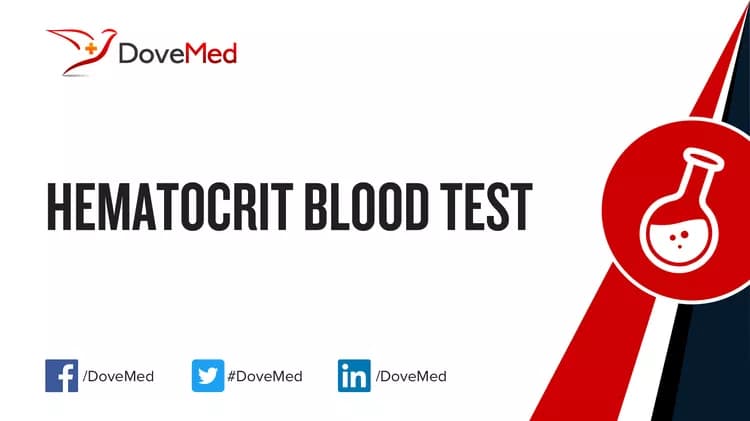What are the other Names for this Test? (Equivalent Terms)
- Crit Blood Test
- Packed Cell Volume Blood Test
- PCV Blood Test
What is Hematocrit Blood Test? (Background Information)
- Blood consists of solid cells (red blood cells, white blood cells, and platelets) floating in a fluid portion called plasma
- Hematocrit (Hct) is the proportion of blood that is made up of red blood cells (RBCs). It is calculated as the ratio of RBC volume to the total volume of blood, expressed as a percentage. For example: 40 milliliters of RBCs in 100 milliliters of blood denotes an Hct of 40/100 or 40%
- Any decrease in the number of RBCs will lead to a decrease in the Hct value; any increase in RBC numbers will cause an increase in the Hct values
- A Hematocrit Blood Test may be ordered along with hemoglobin measurement, or more commonly, as part of a complete blood count (CBC). This may be performed during a general health evaluation or to diagnose, evaluate, and monitor certain conditions, such as anemia (low hemoglobin in blood) or polycythemia (showing an increase in the number of red blood cells)
What are the Clinical Indications for performing the Hematocrit Blood Test?
Following are the clinical indications for performing a Hematocrit Blood Test:
- As part of a general health investigation
- To screen for or diagnose anemia and to monitor the same during treatment. Anemia may be present with symptoms, such as:
- Pallor of eyes/nail beds/palm of hand/tongue
- Fatigue and lethargy
- Fast heartbeat, breathlessness
- To diagnose polycythemia (that shows an increase in the number of RBCs) and to monitor the condition during treatment. Symptoms of polycythemia include:
- Headache
- Flushed appearance
- Dizziness
- Vision disturbances
How is the Specimen Collected for Hematocrit Blood Test?
Following is the specimen collection process for Hematocrit Blood Test:
Sample required: Blood
Process:
- Blood sample is drawn through a needle inserted into the vein (arm). The sample may also be obtained by making a finger prick
- In newborns, the blood sample is drawn from the heel after making a small nick using a scalpel. This is called a heel stick
Preparation required: No special preparation is needed prior to the test.
What is the Significance of the Hematocrit Blood Test Result?
The normal values, called the reference range for hematocrit, may vary slightly from lab to lab. Hence, most lab reports come with a reference range, which is used in that particular centre. A physician interprets the results based on the reference values provided.
A standard reference range in wide use is:
- Male: 40.7-50.3%
- Female: 36.1-44.3%
Some conditions that may lead to a decreased hematocrit value include:
- Decreased production of red blood cells, due to longstanding kidney disease or bone marrow disorders, such as aplastic anemia, blood cancers, or bone marrow damage, mediated by infections, toxins, etc.
- Nutritional deficiencies, such as deficiencies of iron, folate, or vitamin B12
- Increased destruction of red blood cells
- Excessive bleeding
Some conditions that may lead to an increased hematocrit value include:
- Dehydration
- Polycythemia vera - a condition, where the body produces an increased numbers of red blood cells
- Congenital heart disease (in which blood from the two sides of the heart mix with each other, via an abnormal connection)
- Longstanding lung diseases
- Living in high altitudes
The laboratory test results are NOT to be interpreted as results of a "stand-alone" test. The test results have to be interpreted after correlating with suitable clinical findings and additional supplemental tests/information. Your healthcare providers will explain the meaning of your tests results, based on the overall clinical scenario.
Additional and Relevant Useful Information:
Certain medications that you may be currently taking may influence the outcome of the test. Hence, it is important to inform your healthcare provider, the complete list of medications (including any herbal supplements) you are currently taking. This will help the healthcare provider interpret your test results more accurately and avoid unnecessary chances of a misdiagnosis.
Related Articles
Test Your Knowledge
Asked by users
Related Centers
Related Specialties
Related Physicians
Related Procedures
Related Resources
Join DoveHubs
and connect with fellow professionals


0 Comments
Please log in to post a comment.